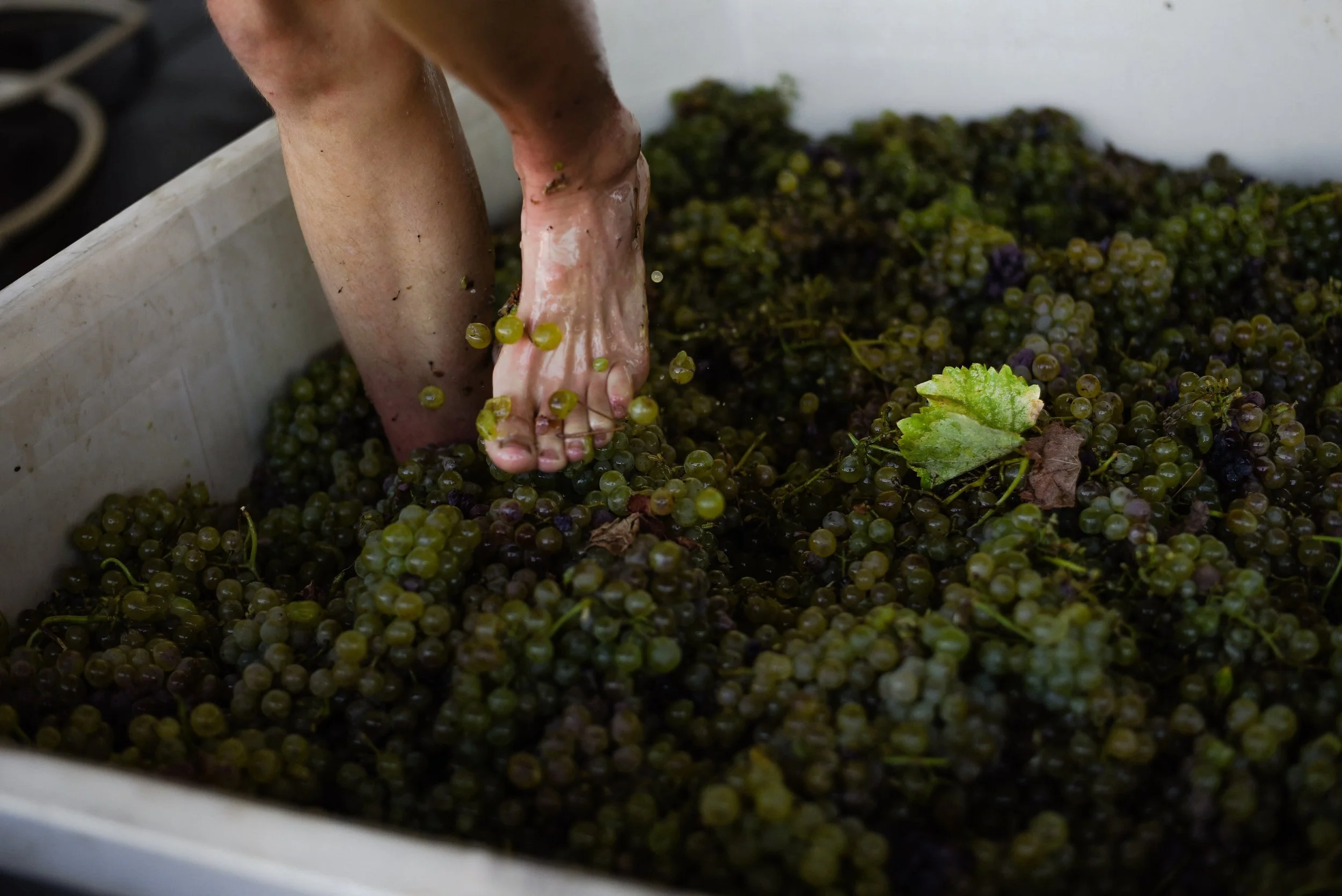emme wines
Rosalind Reynolds
California
story…
A Pennsylvania native, Rosalind Reynolds made her way into wine via the science community. She studied plant genetics & biology with the plan to attend medical school after her undergraduate. Her path took a left turn when she took a six month internship in California working in the research lab at Gallo in Modesto. Quickly being enamored by the wine industry she scrapped the plan to go to medical school & spent the next five years harvest hopping. Spending a pivotal stint with Pax Mahle at Windgap in 2016.
In 2018 she reached back out to Pax with the hopes of landing a job, as well as finding a space to start her own label. She is now Pax’s assistant winemaker for his Pax label & makes her wines, Emme Wines, out of Pax’s facility alongside like-minded collective of young winemakers. Emme Wines is named after Rosalind’s grandmother. Rosalind describes the focus of her label as being “old-school California” choosing to work with varietals like Carignane, Merlot, Zinfandel & others in that realm.
Today she produces around 10 different bottlings per year, most of which are single varietal bottlings that come from a host of vineyard sites.
Philosophy…
As she describes it, she is producing old-school California wines from varietals that have a long history of being grown in California. Some that are known but not common like Carignane & Colombard, while others are virtually unheard of like Abouriou & Muscat Vert. Like most young winemakers in California Rosalind does not own any vineyards. She sources her fruit from vineyard sites that are farmed at the very least sustainably, but preferably ones that are farmed with organic &/or beyond practices. These vineyard sources go much deeper for her than just a place she gets fruit from. She enjoys the connection she can make with the farmers. Often times it is this connection that is the deciding factor for whether or not she works with a vineyard/grower/varietal. She wants to know that the people farming the fruit she is going to use care as much about what they are doing as she does about what she is doing.
In the winery her practices are simple & purposeful. Fermentations all take place with ambient/native yeasts in a either stainless steel, neutral wood or concrete & in some cases a mix of some or all of those. Elevage takes place in similar vessels as fermentation, all dependant on the varietal or end wine she is aiming to produce. It is not uncommon for her to employ foot treading, whole clusters, skin-contact on whites, or some carbonic in her production methods. None of her wines are ever fined or filtered. The only additive used in her wines is a small amount of SO2, which in many cases is not added at all.






